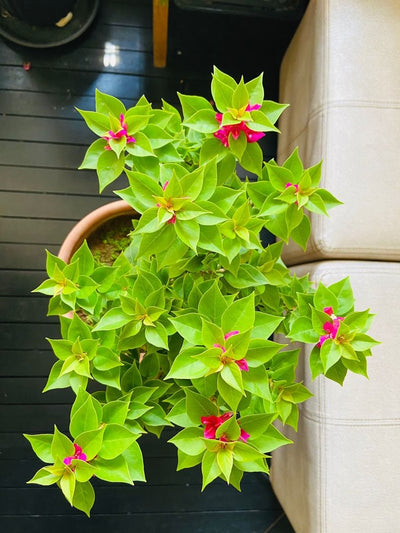Make Your Own Compost with Garden Waste

Know How to Manage Garden Waste
A lot of gardeners use their garden waste to make their own compost manure. If your garden’s big enough, then you can start a compost heap. Otherwise, home compost bins are available from all garden centres.
Here are the sort of things you can add to your bio compost bin:
- Soft hedge clippings
- Old bedding plants
- Weeds and lawn mowings
- Fallen leaves
- Kitchen waste such as vegetable peelings
Make sure, if you’re going to add kitchen waste compost bin, don’t add any food waste, and don’t add any meat or chicken. These materials will only attract pests and scavengers.
Build up your home composting of garden waste in layers. Every six inches or so, add a layer of soil, or some fresh manure. And once your heap or bin is full, keep it covered for about six months. An old bit of carpet will do the job here.
All your ingredients will biodegrade, leaving a fibrous soil for plants. You’ll then have an ample supply of nutritious soil-improver, all without spending money, and all without producing any composting of garden waste at all.
Compost is an important soil amendment made from decomposed organic matter, such as food scraps, yard waste, and other organic materials. Composting is the process of allowing these organic materials to decompose and break down into a nutrient-rich soil amendment that can be used to improve soil health and support plant growth.
Improves soil health: Compost is an excellent source of organic matter that can improve soil structure, texture, and fertility. It helps to increase soil porosity, which improves soil aeration and water-holding capacity. Compost also provides a range of essential nutrients that plants need to grow and thrive.
Know how to manage garden waste.
A lot of gardeners use their garden waste to make their own compost manure. Yes, that's true! Composting is a great way to recycle organic waste and turn it into a nutrient-rich fertilizer for your garden. Composting can be done using various materials such as kitchen scraps, yard waste, leaves, grass clippings, and other organic matter. The process of composting involves breaking down these materials into a dark, crumbly substance that can be added to soil to improve its structure and fertility.
To make compost, gardeners typically create a pile of organic waste and use a combination of nitrogen-rich materials (such as food scraps and green garden waste) and carbon-rich materials (such as dry leaves and brown garden waste) to create the right balance of nutrients for decomposition. The pile is then periodically turned to aerate it and promote decomposition. Over time, the materials break down into compost that can be used as a natural fertilizer for plants.
Composting is an eco-friendly practice that helps reduce the amount of waste sent to landfills while also improving soil health and promoting plant growth. Many gardeners find that making their own compost is an enjoyable and rewarding process that helps them maintain a healthy, productive garden.
Building up your compost pile in layers with a balance of brown and green materials is key to creating healthy, nutrient-rich compost. Here are some additional tips for successful home composting:
Brown materials, such as dried leaves, straw, and twigs, provide carbon and help create airflow in the pile.
Green materials, such as grass clippings, vegetable scraps, and coffee grounds, provide nitrogen and help activate the decomposition process.
A good ratio to aim for is roughly 2 parts brown to 1 part green.
Keep the pile moist but not too wet. If it's too dry, it won't break down properly, but if it's too wet, it may start to smell.
Turning the pile occasionally will help aerate it and speed up the decomposition process.
Avoid adding meat, dairy, and oily foods, as they can attract pests and create odors.
The Important Benefits of Composting
Can save money- Composting it is a natural and organic process.
Good for soil. This can be of great help to the overall health of the soil.
Reduces Garden Pests.
Make a Trip to the Tip

Most tips and recycling centers have a specific area for organic garden waste composting. Here are some examples of the sort of things they accept:
- Grass and weeds
- Leaves and flowers
- Pruned branches, clippings, twigs, and barkHome-grown fruit and vegetables
Recycle Now has an excellent recycling locator compost fertilizer. Just fill in their online form and they’ll help you find your nearest recycling centre.
Recycle Now also recommends using strong and durable bags to transport your garden waste material, rather than ordinary bin liners, and they advise against overfilling your bags. This way, you can simply empty your garden waste at the site of compost. And as the bag is less likely to damage with waste, you can take it back home with you, ready to use again next time.
If you want to make your own compost at home vertical garden tower with planter and composter is the perfect choice.
Composter vertical garden planter tower

A vertical gardening systems that works in an efficient in composting material of garden waste and provide fertilizer to plant through this Sadabahar (Our Portable Vertical garden) It helps in fertilizer of each plant in a better way. Grab the deal with in budget at Urban plants




Leave a comment